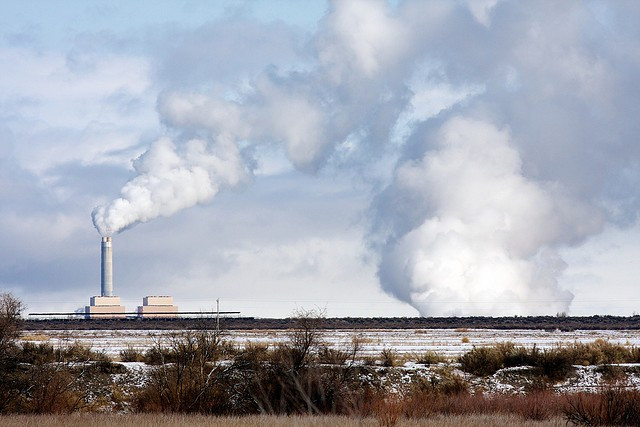Climate change: UK and Europe failing on technology essential to meet carbon emission targets

The technology that is essential for the UK to meet its carbon targets is making little progress and will put both Britain and Europe far from their climate goals, according a new Imperial College London study.
Bridging The Gap, a report released on 24 June, looks at what needs to happen to ramp up what is known as carbon capture and storage (CCS) technology to a point where it could be a key to help all of Europe meet its climate goals.
For its part, Britain needs to invest roughly £22bn to £31bn (€27bn to €38bn, $34.5bn to $48.6bn) in CCS — a method of liquefying carbon emissions and pumping them underground — by 2030, according to the study.
There is only one power station with CCS operating in Canada and two under construction in the US
If this does not happen, it will not be able to meet promises to the global community to cut emissions by 80% by 2050. Negotiations to get other nations to agree to a climate deal have been based on this pledge.
However, the UK government's £1bn investment in the technology makes it a leader in Europe. The UK has the most plans for CCS in the works, with two main power plants, White Rose coal plant and Peterhead gas plant, at an advanced stage of testing it out.
"You could argue that nobody has made good ground on this," said Dr Iain Staffell, a research fellow at Imperial College Business School, who contributed to the report.
"There is only one power station with CCS operating in Canada and two under construction in the US," he added, pointing out "the UK is leading the way in Europe, as we have three out of the four projects undergoing design studies". A decision on whether to invest in either of the main projects will be made in 2016.
Boundary Dam coal power plant
Late in 2014, a provincial Canadian power company started up the Boundary Dam coal power plant that was retrofitted with the technology. The project was subsidised by both federal and provincial governments, as well as UK grants. But the economics of the project were only possible after the Canadian government brought in regulations on coal-fired generator emissions. The new rules took effect in 2015 just months after the plant started up.
The technology will scrub 90% – around one million tonnes of carbon dioxide (CO2) annually – from the coal plant's emissions. It is equivalent to taking 250,000 vehicles off the road.
"The low price of carbon permits on the EU's Emissions Trading System is a definite problem, these are trading at far lower prices than they were expected to, which is a disincentive to all forms of low carbon electricity," said Staffell of the reasons behind a lack of European investment.
The low price of carbon permits on the EU's Emissions Trading System is a definite problem, these are trading at far lower prices than they were expected to, which is a disincentive to all forms of low carbon electricity
"The report argues for stronger policies to incentivise CCS at the European level, bringing both public and private sectors together," he continued.
Across Europe there are six potential projects, but each is only in the planning stages. The report stresses regulations or a tax on carbon can take care of this.
Early on 24 June, a Dutch court ordered its government to cut greenhouse gas emissions by at least 25% by 2020 after campaigners brought a case by 900 Dutch citizens. They argued the country is obliged to protect its people from climate change. The landmark case may indicate similar cases may follow.
So far EU programmes have only provided a combined €1.3bn for CCS development, and very few of its 28 members have any domestic regulations or carbon taxes to support the technology's development.
Sir David King, the UK's special representative for climate change, said just two weeks ago that CCS is an essential part of Britain's climate strategy and the rest of the world.
"We have a comprehensive programme of work to promote CCS development, and globally the UK is independently recognised as having one of the best policy environments for the development of CCS," urged a UK Department of Energy & Climate Change spokesperson. "That's why companies are investing their own money to develop CCS in the UK."
© Copyright IBTimes 2025. All rights reserved.





















